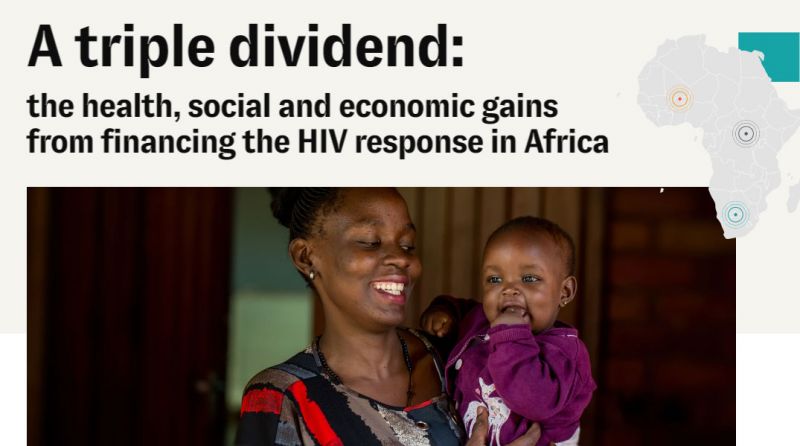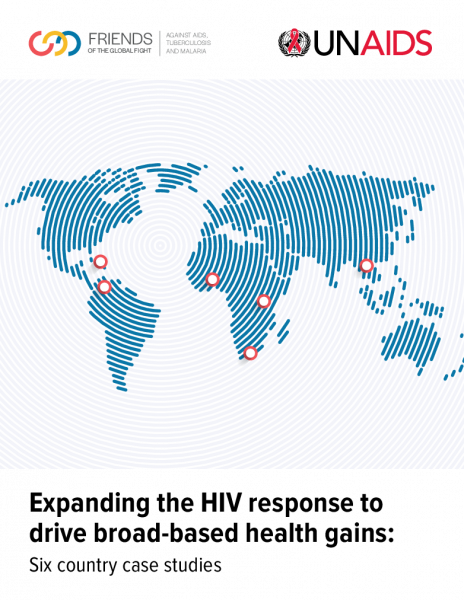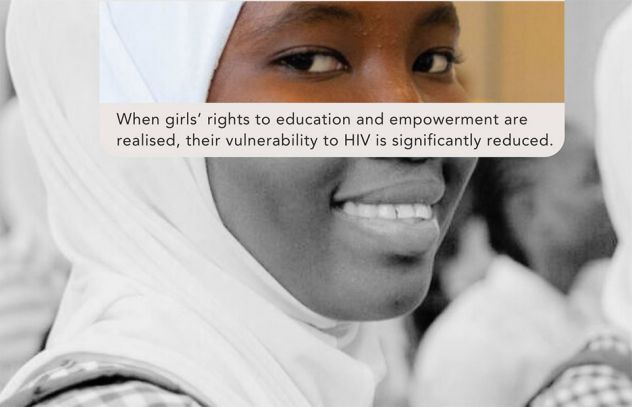UNAIDS needs to increase funding to just 1% of the US$ 20 billion HIV resources to effectively support countries in their goal of ending AIDS by 2030
GENEVA, 28 March 2024—UNAIDS is urging donors for a modest increase in funding to ensure that 35 countries can end their AIDS pandemics by 2025, five years ahead of the 2030 target. Current funding for UNAIDS is at US$ 160 million, less than 50% than the resources available in 2015. For maximum impact UNAIDS estimates it will need US$ 210 million annually which represents less than 0.02% of total health spending in low- and middle-income countries.
“UNAIDS has remained a steadfast and dependable partner, advocating and leveraging the strengths of the UN system to catalyze action, secure commitments, mobilize stakeholders, generate authoritative data, empower communities, address vulnerabilities, and tackle barriers,” said Ruth Laibon-Masha, Chief Executive Officer, National Disease Control Council of Kenya. “Let us seize this historic moment, where we are united in our consensus that we need UNAIDS to be fully functional as we have no doubt of the contribution of UNAIDS to global health and its centrality to ending AIDS as a public health threat. Kenya reaffirms our commitment to UNAIDS by honoring our pledge to contribute funds in 2024 and invite other implementing and donor countries not to be left behind by also increasing their contributions.”
UNAIDS projects that fully funding the Joint Programme would enable 35 countries to achieve the viral load suppression targets by 2025. That achievement would save 1.8 million lives, prevent 5.7 million new HIV infections by 2030 and establish a solid foundation for the world to end AIDS by 2030.
“If UNAIDS was not there, we would all be asking for UNAIDS to be established. While we celebrate the progress we have made, we still need a very strong and well-resourced UNAIDS to continue to drive that progress.” said Ambassador John Nkengasong, U.S. Global AIDS Coordinator and Senior Bureau Official for Global Health Security and Diplomacy. “A generational threat requires sustained leadership - sustained leadership that comes with the sustained commitment to provide financing for UNAIDS. So it is always our commitment from the United States that we make UNAIDS stronger and will continue to make UNAIDS that body that provides that Northern Star for all of us.”
“We rely on UNAIDS to support the voice of communities most affected by HIV in national HIV policies and decision-making processes as well as in efforts to improve access to services and address stigma and discrimination and gender inequity” said Peter Sands, Executive Director of the Global Fund. “Ensuring that UNAIDS is adequately resourced is critical to achieving continued progress in controlling HIV.”
As Mary Mahy, Director of Data for Impact, UNAIDS explains, “Diseases go through a period of increasing new infections, and over time, after interventions are implemented, new infections start to decline and countries reach a point of disease control then elimination, and eventually eradication. But with HIV we have not achieved disease control globally and some countries are still in the increasing infections stage. So there is still a considerable amount of work to be done in the HIV response to achieve HIV disease control, elimination and eradication.”
In 2022, every minute someone died of AIDS, 4000 young women and girls aged between 15 and 24 became infected with HIV every week, and of the 39 million people living with HIV more than 9 million do not have access to HIV treatment.
“Pandemics tend to go through cycles of panic and neglect. But health security can only be delivered when we break these cycles and deliver and sustain the gains that we have made together,” said Winnie Byanyima, Executive Director of UNAIDS. “With a modest increase in funding, over the next two years, UNAIDS can support 35 countries in reaching the 95-95-95 targets – and help sustain the gains. This will be an outstanding global achievement.”
UNAIDS has developed a value proposition which highlights three key messages for the 2024–2025 period:
- We know how to end AIDS as a public health threat. Taking this path is a political and financial choice.
- A modest investment in UNAIDS will deliver maximum impact at the national and global levels.
- UNAIDS is uniquely placed as the lead of the global HIV response. Investment in UNAIDS is vital to invest to end AIDS, fight inequalities and save lives.
UNAIDS is leading on the HIV response sustainability agenda, supporting countries to ensure well resourced, people centred and human rights-based HIV programmes that are increasingly funded through domestic resources. The sustainability agenda encompasses political, programmatic and financial sustainability, developed in close collaboration with PEPFAR, the Global Fund and other donors, countries and communities.
The agenda will consider the implications of the growing financial and debt crises faced by many low- and middle-income countries which are also highly affected by HIV. Approximately 60% of the resources for HIV responses in low- and middle-income countries came from domestic sources in 2022, compared to 50% in 2010. UNAIDS has a critical role in ensuring that political, programmatic and financial commitments for the HIV response are sustained.
“We all want the Joint Programme to continue to lead the AIDS response towards 2030,” said Kenya's Ambassador to the United Nations office in Geneva and Chair of UNAIDS Programme Coordinating board Cleopa K. Mailu. “It is the priority we make to the vulnerable people who need our support to lead meaningful and full lives. We must be able to find a collective solution to close the funding gap. Any moment we spend speaking of unsustainable funding for UNAIDS is a moment lost to save a life, prevent a new infection or a death.”
By fully funding UNAIDS and drawing on the technical expertise and geographical reach of its 11 United Nations Cosponsors, UNAIDS can continue to strategically lead and steer the response to HIV, based on data, agreed targets and principles laid out in the Global AIDS Strategy 2021-2026. UNAIDS can maximize the return on investments made by governments, PEPFAR and the Global Fund, and work hand in hand with countries to end their AIDS pandemics by 2030 and ensure sustainability into the future.
UNAIDS
The Joint United Nations Programme on HIV/AIDS (UNAIDS) leads and inspires the world to achieve its shared vision of zero new HIV infections, zero discrimination and zero AIDS-related deaths. UNAIDS unites the efforts of 11 UN organizations—UNHCR, UNICEF, WFP, UNDP, UNFPA, UNODC, UN Women, ILO, UNESCO, WHO and the World Bank—and works closely with global and national partners towards ending the AIDS epidemic by 2030 as part of the Sustainable Development Goals. Learn more at unaids.org and connect with us on Facebook, Twitter, Instagram and YouTube.






